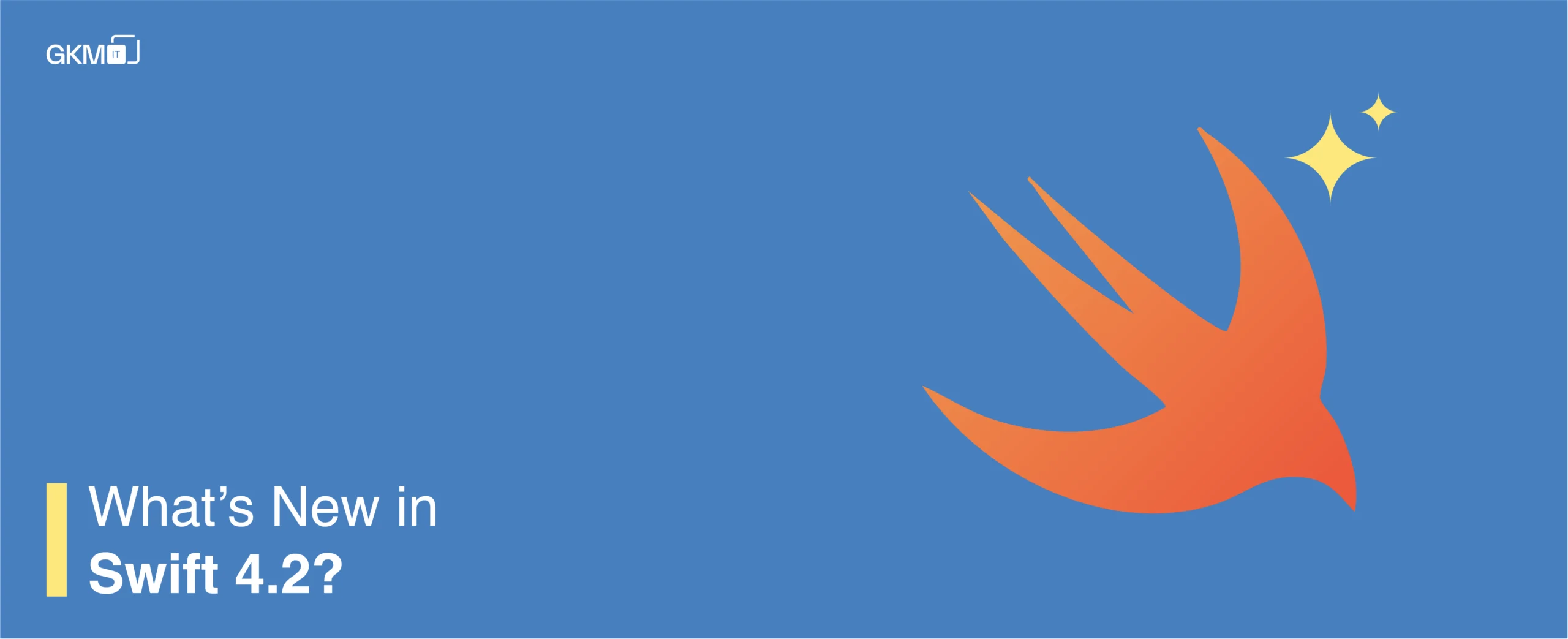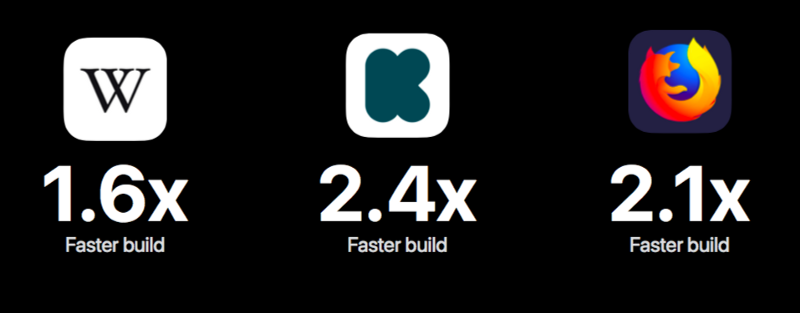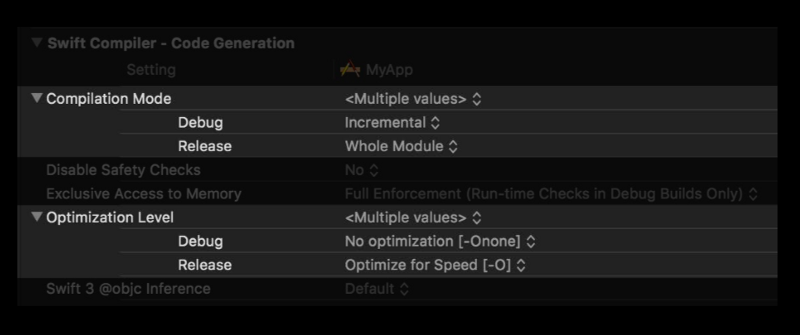
What’s new in swift 4.2?
Enhancements and Performance Upgrades
Swift 4.2, introduced at WWDC 2018, brings several enhancements, making development more efficient and optimized. With a focus on source compatibility, improved debugging, and runtime optimizations, Swift 4.2 is a step forward for developers.

WWDC18
Source Compatibility: One Compiler, Three Modes
Swift 4.2 maintains compatibility with previous Swift versions while introducing refinements:

Source Compatibility
- Swift 3: Accepts Swift 3 code built with Xcode 8
- Swift 4: Accepts Swift 4 code built with Xcode 9.3
- Swift 4.2: Works like Swift 4 but integrates new Swift-related SDK improvements
Faster Swift Debug Builds
Xcode 10 significantly improves build speeds compared to Xcode 9, making debugging and development more seamless.
Compilation Mode vs. Optimization Level
- Stop using Whole Module Compilation for Debug builds – It was a temporary workaround but is now unnecessary
- Use Incremental Compilation – Boosts debugging efficiency

swift debug builds
Compilation Mode versus Optimization Level

compilation maode
Stop Using Debug with Whole Module Compilation

Module compilation
Using Whole Module for Debug builds was a stopgap to improve builds Whole Module prevents incremental builds
Use Incremental for Debug builds!
Runtime Optimizations
// Calling Convention: “Owned” (+1 retain)class X { … }func caller() {// ‘x’ created with +1 reference countlet x = X()}foo(x)func foo(x: X) {let y = x.value// Calling Convention: “Owned” (+1 retain)class X { ... }func caller() {// ‘x’ created with +1 reference countlet x = X()foo(x)}func foo(x: X) {let y = x.value...// release x}
Collection of EnumCases
// SE-0194 Derived Collection of Enum Casesenum Gait { case walk case trot case canter case gallop case jog static var allCases: [Gait] = [.walk, .trot, .canter, .gallop]}for gait in Gait.allCases { //This code will never print “jog”! print(gait)}// SE-0194 Derived Collection of Enum Cases with using CaseIterableenum Gait: CaseIterable { case walk case trot case canter case gallop case jog}for gait in Gait.allCases { print(gait) // It will print all cases}
Conditional Conformance
Inconsistent Behavior in Swift 4.0

Why Aren’t All Arrays Equatable?


Conditional Conformance


Conditional Conformance Allows Composition

Synthesized Equatable and Hashable
// SE-0185 Synthesizing Equatable and Hashable Conformancestruct Restaurant: Equatable { let name: String let hasTableService: Bool let kidFriendly: Bool}// SE-0185 Synthesizing Equatable and Hashable Conformancestruct Restaurant: Hashable { let name: String let hasTableService: Bool let kidFriendly: Bool}// Synthesizing Conditional Equatable and Hashableenum Either<Left, Right> { case left(Left) case right(Right)}extension Either: Equatable where Left: Equatable, Right: Equatable { }extension Either: Hashable where Left: Hashable, Right: Hashable { }// This just works!var mySet = Set<Either<Int, String>>()
Why Swift 4.2 Matters for Mobile App Development
Swift 4.2’s performance improvements and language refinements make it a powerful tool for Mobile App Development Services developers. Faster debugging, better memory management, and streamlined enum handling allow teams to build scalable, high-performance applications with fewer errors and improved maintainability.
Additional Enhancements in Swift 4.2
Beyond these core updates, Swift 4.2 introduces several refinements that further enhance productivity:
- Random Number Generation: A new native API eliminates the need for third-party libraries
- Warning Suppression for Unused Results: Helps developers identify potential code issues
- Improved Hashing Algorithm: Makes custom types work more efficiently in dictionaries and sets
These improvements make Swift 4.2 a must-have upgrade for developers looking to enhance their coding efficiency and performance.